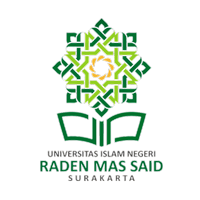Puppetry and Peacebuilding: Indonesian Students’ Perceptions of Israeli and Palestinian Versions of Sesame Street TV Show
Contributors
Mufti Rasyid
Shovi Maryam
Keywords
Proceeding
Track
General Track
License
Copyright (c) 2025 International Conference on Cultures & Languages

This work is licensed under a Creative Commons Attribution-NonCommercial-NoDerivatives 4.0 International License.
Abstract
The Israeli–Palestinian conflict remains one of the most enduring and polarizing geopolitical issues, often shaping global public opinion. Indonesia, a long-standing supporter of Palestine, has consistently aligned itself with the pro-Palestinian narrative. Amid the ongoing search for peaceful resolutions, peace education has gained recognition as a vital approach to fostering understanding and mutual respect. This study examines how Palestinian and Israeli adaptations of Sesame Street, a puppetry TV show, titled Shara’a Simsim (شارع سمسم) and Rechov Sumsum (רחוב סומסום)—can serve as effective tools for peace education. It addresses two main questions: (1) What peace education values are embedded in these programs? and (2) How do Indonesian students perceive the Israeli–Palestinian conflict after engaging with the shows? Using a mixed-methods approach, the study combines content analysis with a survey involving thirty-five (35) students of UIN Sayyid Ali Rahmatullah Tulungagung, Indonesia. The findings reveal that the Palestinian and Israeli versions of Sesame Street promote core values of peace education, particularly coexistence, tolerance, adaptability, pluralism, and equity. Furthermore, the study observes a positive shift in students’ perceptions, suggesting that exposure to such educational content can nurture more empathetic and balanced understandings of complex international conflicts.

